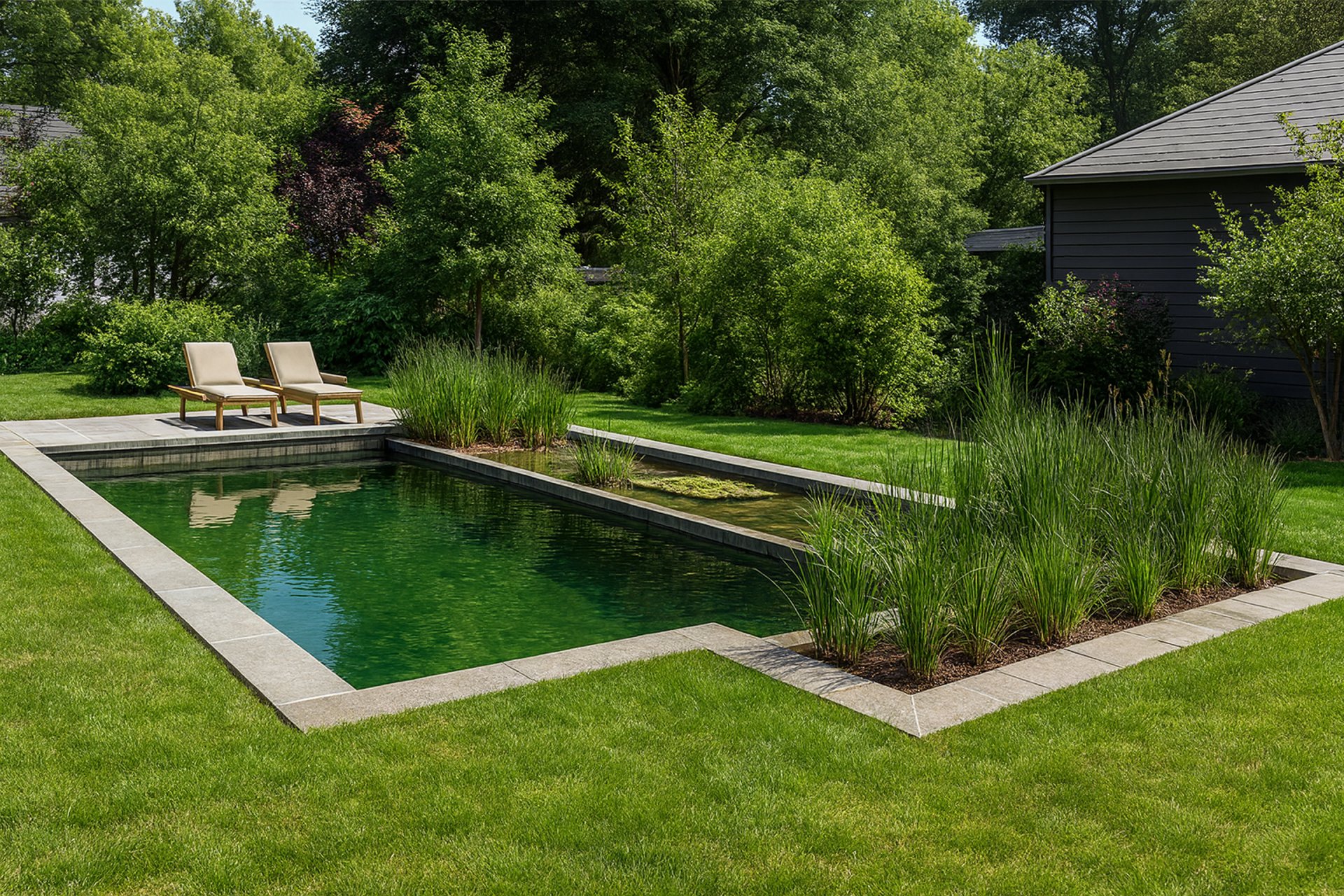
Transform your existing chlorine or salt pool into a clear, chemical-free natural swimming environment.
Natural Pool Conversions
Convert Your Existing Pool
Most concrete and lined pools can be re-engineered into natural systems using your existing shell and circulation as the foundation. Instead of demolishing the pool, we adapt it for low-energy, chemical-free operation by upgrading the filtration, hydraulics, and—where space allows—adding a planted regeneration zone.
Depending on your site and preferences, this can mean a fully planted conversion with a wetland, a compact converter module that keeps your current pool look, or a hybrid approach that blends both. The goal is the same in every case: clear, living water that feels like swimming in a natural spring, without rebuilding your entire pool.
Three Ways to Convert a Traditional Pool
A. Regeneration-Zone Conversion (Plant-Based)
Adds a planted wetland that provides full biological filtration. Ideal when space allows a 25–50% regeneration area.
B. Compact Module Conversion (Plant-Free or Low-Plant)
Keeps your pool’s existing look while swapping the chemical system for a biological filter module + UV-C. Fits tight sites.
C. Hybrid Conversion
A smaller planted zone supported by a compact biofilter — excellent when clients want a natural aesthetic but lack space for a full wetland.
What Changes During a Conversion
A typical conversion includes:
Removing or isolating the chlorine/salt system
Upgrading the pump to a high-efficiency, low-energy model
Installing a biological filter and/or wetland
Adding or redirecting circulation lines
Integrating returns and UV-C sterilisation
Updating the control system and fittings
Optional planting of aquatic species (if choosing a regeneration zone)
What Stays the Same
Your existing pool shell
Your basic layout and footprint
Most plumbing routes (modified as needed)
Steps, benches, swim zones
Your deck or patio
Your general pool shape
This is why conversions are so cost-effective — they preserve your structure and transform the system.
Benefits of Converting to a Natural Pool
Clear, healthy, chemical-free water
Softer feel on skin and eyes
Lower long-term energy and maintenance costs
No more chlorine handling or storage
Summer-ready with minimal upkeep
Works with existing pool footprints
Can be plant-based or plant-free depending on preference
Is Your Pool a Good Candidate?
Most concrete, liner, and tiled pools convert well.
Suitable candidates include:
Standard rectangular pools
Freeform pools
Saltwater systems
Chlorine pools
Pools with aging filtration systems
Pools with pump-room access
If the structure is sound, conversion is almost always possible.
Conversion Costs
Typical conversion packages begin around €4,000 – €12,000, depending on:
Pool size and depth
Whether a wetland is added
Equipment selection (pump, UV, biological chamber)
Condition of existing plumbing
Access and installation complexity
Living water, by design.
© 2026 Valemora LDA. Aqua Vitae Pools is a trademark of Valemora LDA. All rights reserved.
Offices
Lisbon, Portugal
San Francisco, California


